
Acne Treatment: Top 10 Natural Products To Try
Acne is a common ailment that affects a lot of people, particularly teenagers, but even those in early adulthood. Acne treatments vary from those prescribed by doctors to all-natural remedies that have been used for centuries with lots of success.
As advocates for natural beauty and skincare, we've been having a look at some of the best natural products you can try for treating everything from mild acne to severe acne and we've created a list of the top 10 natural remedies we think you should try out if you're suffering from acne. Keep reading to find out more.
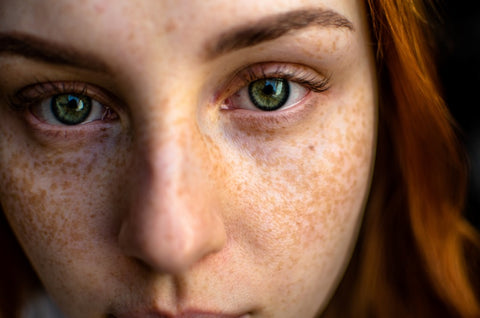
What is acne? And what is acne-prone skin?
Acne is an ailment of the skin that causes spots to appear on the face, neck, shoulders, chest, and back. These spots may be whiteheads and blackheads, but could also be inflamed, pus-filled pimples in cases of severe acne. There are two kinds of acne that affect people; hormonal acne, affecting adults in their early twenties usually, and acne vulgaris, which affects teens.
Some people have what is called acne-prone skin where they have small outbreaks of whiteheads and blackheads and have to choose skincare products that cater for this kind of outbreak.
What are the symptoms of acne?
Symptoms of acne can be split into a few different kinds of spots:
- Whiteheads - these are smaller spots and are usually under the surface of the skin
- Blackheads - these are small, blocked pores that appear to have little black heads
- Pimples - usually inflamed, these spots are generally pus-filled and red
- Nodules - red bumps that are painful and appear under the skin
Acne can appear on the face, neck, back, chest, and shoulders, but you may also find small spots like this elsewhere. This is unlikely to be caused by acne and is usually the result of a clogged pore.
What causes acne?
Acne is caused by excessive sebum production. Each pore is made up of an opening for a hair follicle and an oil gland which is meant to release sebum which should move up the hair and out of the pore. When too much sebum is produced, there can be an accumulation of dead skin cells or bacteria at the site which leads to a pimple forming under the skin. Those with acne-prone skin have excessive sebum production which is what cause the outbreaks they suffer from.
When to see a doctor about severe acne
There are different types of acne; mild, moderate, and severe acne. Your acne treatment will depend on which kind you are suffering from.
Mild acne, which is a form of non-inflammatory acne, usually presents with whiteheads and blackheads. This kind of acne can usually be treated with over-the-counter treatments (OTC), which include the active ingredients salicylic acid or benzoyl peroxide or with prescription-strength topical retinoids.
Both moderate and severe acne are forms of inflammatory acne. Moderate acne usually presents with papules and pustules whereas severe acne can result in nodules and cysts. Inflammatory acne is usually treated with prescription medications which can include both oral and topical treatments. Treatments can include acne medication, like antibiotics, retinoids and other topical treatments options, or therapies, like light therapy.
Can I prevent acne?
Unfortunately, acne cannot be prevented as such but there are ways you can minimise its presence in your life. Ways to reduce acne include:
- Washing your skin regularly - Usually by using a cleanser designed for oily skin and which has active ingredients like salicylic acids that can clear away dead skin cells and excess sebum. Washing regularly ensures that you are regularly removing the causes of acne from your skin.
- Washing your skin after exercising - Sweat causes blockages in pores that can lead to acne breakouts.
- Using non-comedogenic or non-acnegenic skincare - These two terms essentially mean that the skincare products you're using are designed not to clog pores and can help you not to develop acne.
- Keeping hair products away from the face - When spraying hairspray, using hair gel, or adding any kind of conditioner to hair, it is important to avoid getting it on your face as it can clog pores and lead to breakouts.
- Wear loose clothing - This is mainly for people who suffer from acne on their chest, back, and shoulders. Tighter clothing can rub and lead to more acne.
These steps will help you not to worsen acne and can help avoid any further breakouts. It is extremely important for those with acne to regularly and thoroughly wash their faces, and anywhere else they regularly get breakouts.
What options are there for acne treatment?
Acne treatments come in two variations; those which are prescribed and those which aren't. Prescribed medications are usually given by dermatologists to those with moderate or severe acne whereas other treatments can be bought over the counter.
Prescribed treatments usually include three different options. These are oral medications, topical treatments, and therapies.
Oral medications include:
- Antibiotics - To treat any infections and to fight off the bacteria that causes acne.
- Combined contraceptive pill - The contraceptive pill is known to be useful in treating moderate to severe acne. The combination of both estrogen and progesterone help to lower the number of androgens in your body which results in less sebum and therefore less acne.
- Anti-androgen agents - These are usually only prescribed to people who have tried antibiotics with little success. Androgens are responsible for sebum production so lowering their population in your body is helpful to fight acne.
- Isotretinoin - This oral treatment helps to block the production of natural oil so your pores are less likely to be clogged by it.
Topical treatments include:
- Retinoids and retinoid-like drugs - These work to prevent dead skin cells from clogging pores.
- Salicyclic acid - Which is known to help shed dead skin cells as well as reduce swelling and redness caused by acne.
- Dapsone - A class of medication called sulfone antibiotics, the way these topical treatments work is to stop the growth of bacteria and decrease inflammation.
- Benzoyl peroxide - This treatment helps to attack the bacteria on your skin and unclog pores at the same time.
Therapies include:
- Light therapy - This kind of therapy, done using blue lights, works to reduce redness and swelling and can also reduce pimples. Some studies show this therapy is successful in reducing acne by 70% in most people.
- Chemical peel - A chemical peel is used to quickly exfoliate and remove dead skin cells from the surface of your skin. It works quicker and is more effective than exfoliation done at home.
- Clearing and extraction - Though this therapy can cause scarring, it is effective in treating acne under the skin. It is usually done by a dermatologist and is performed to clear clogged or compacted pores.
- Steroid injection - This kind of therapy quickly tackles inflammation in the breakout and sends signals to white blood cells to flush out the bacteria causing the blockages. This is usually only used in severe cases, like when cysts have formed.
As well as prescribed medications, there are lots of over-the-counter treatment options which usually contain salicylic acid or benzoyl peroxide too but in much smaller amounts. OTC treatments can be extremely effective in treating acne and can even treat moderate cases.
And finally, our favourite, there are lots and lots of natural remedies for treating acne. To find out more about natural remedies, check out the next section.
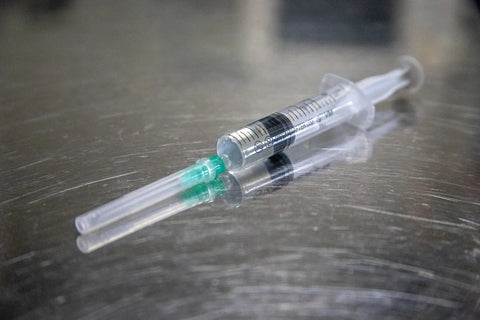
Treating acne naturally
As natural beauty enthusiasts, we're always looking for natural remedies to common ailments and there are absolutely tonnes of options when it comes to natural acne treatments. These treatments have been used for years to treat acne and have proven successful in that time.
But why choose natural remedies when there are so many options on offer with doctors? To begin with, doctors may be hesitant to offer such extreme treatment options while all other treatments have not been exhausted. You're unlikely to be prescribed medication on your first trip to the doctors with acne.
Another reason to try natural acne remedies is that sometimes the prescribed stuff just doesn't work. Everyone is different, and our bodies respond differently to different treatments, this means that some prescribed medications may have no effect on your acne and you may find yourself getting more and more frustrated. This is where alternative options may be able to help.
As well as this, there is growing concern about the number of antibiotics given out by doctors and with more and more strains of antibiotic-resistant diseases, it might be better to try everything else first before turning to this kind of treatment. Prescribed medications may also result in negative side effects that leave damaged skin behind.
Natural skincare is better for your skin too. Packed full of the good stuff from nature, like vitamins, antioxidants, and other beneficial minerals, all of this goodness is soaked through your skin. As your biggest organ, your skin should be treated with kindness too and some of the chemicals found in prescribed products can be really harmful to your skin.
It is worth noting that while natural skincare is great for your skin, it undergoes little approval by a unified authority. This means that some of the claims on the packaging may not be true. Always buy from a reputed source and look out for organic and cruelty-free labels (both of which need approval before they can be used.)
Top 10 natural products for treating acne
So, we've gone on about how great natural remedies are and now it is time to show you some great options. One of the fantastic things about natural remedies is you're likely to find these products in your kitchen, and if not, then in your local health food store.
These remedies can be used on their own in a pure form or can be found in natural skin care products as extracts and active ingredients.
Apple cider vinegar
A favourite among natural health enthusiasts, apple cider vinegar (ACV) is regularly taken as a supplement or by the spoonful to treat high cholesterol, inflammation, and weight management. But it can also be used topically.
Topically, ACV can help to kill bacteria, suppress inflammation, and improve acne scars, though a patch test should be done before use to ensure it does not irritate your skin.
To use ACV topically, you will need to mix one part ACV with three parts water (add more water if it irritates your skin and stop using completely if it doesn't get better with further dilution). You should use ACV as a toner, rubbing it onto your skin after cleansing and letting it sit before rinsing it off thoroughly. This can be done both in the morning and in the evening.
Zinc supplements
It is thought that low levels of zinc in the blood can be a cause of acne and many people who suffer from acne do have lowered levels of this mineral. Zinc can help to reduce severe and inflammatory acne significantly and when taken orally, it also helps with cell growth, hormone production, immune function, inflammation, metabolism, and oxidative stress.
Zinc is an essential mineral in the body and we can get quite a lot naturally. The maximum recommended dose of zinc is 40mg a day and you should look for supplements containing zinc oxide as this has the highest levels of elemental zinc.
Putting zinc directly onto your skin is not as effective as taking it orally and so a supplement is the best option for acne. Always take supplements as directed by the product and never exceed the maximum dose. Symptoms of zinc overdose include gut irritation.
Tea tree oil
Tea tree essential oil is a natural antibacterial and antiinflammatory. It is known to reduce the swelling and redness of acne as well as fight the bacteria that causes acne. Studies have proven tea tree oil’s effectiveness, equating its efficacy with the efficacy of 5% benzoyl peroxide.
Tea tree oil is found in lots of acne treatments, including creams, lotions and gels. It can also be used in oil form when diluted in a carrier oil. For spot treatment of acne, dilute around 1:9 with a carrier oil like coconut oil.
Honey and cinnamon mask
A favourite of home-spa enthusiasts - a honey and cinnamon mask combines two incredibly powerful natural ingredients. Honey is frequently used in skincare products, like masks and moisturisers, because of its antibacterial properties and cinnamon works with it to fight the bacteria that causes acne.
Both honey and cinnamon are great supplement options for health enthusiasts too, helping to lower blood pressure and blood sugar levels as well as high cholesterol. Honey is also effective in wound healing and burns treatment - so they're great to have in the house anyway!
To create a honey and cinnamon mask you should:
- Mix two tablespoons of honey and one tablespoon of cinnamon into a paste
- Apply the paste to the face and leave to rest for 10 - 15 minutes
- Rinse off and repeat 1 - 2 times a week
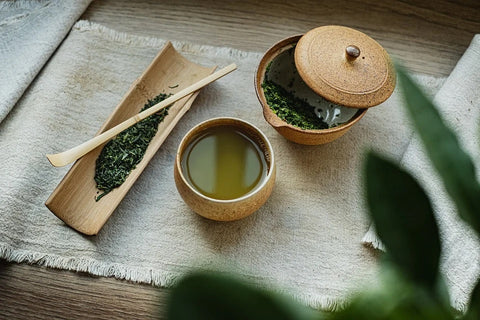
Green Tea
Another favourite of health enthusiasts, green tea is an exceptional addition to your life. WIth some of the highest antioxidant levels that nature can offer, green tea is effective in boosting your overall health when drunk each day.
Green tea is known to lower blood pressure and blood sugar levels as well as improve brain function, assist with healthy aging, lower cholesterol levels and inflammation, boost metabolism and lower stress and anxiety. Green tea is awesome!
On the skin, green tea is just as powerful. With the high number of antioxidants, green tea is a good match for stubborn acne. The polyphenols present in this tea help to fight bacteria and topical application helps to improve acne immediately.
Green tea extract is often found in creams, face masks, cleansers, and many more skincare products but it can also be used in its natural form. If using green tea on your skin, try to find organic green tea. (We also recommend drinking organic green tea too!)
To apply to the skin:
- Steep the green tea for 3 - 4 minutes and then allow to cool
- Apply to the skin and then rinse off when dry
- Repeat 2 - 3 times a week
Another option is to create a green tea solution and add it to a spray bottle for easy and more frequent application.
Witch hazel
A common ingredient in many skincare products, witch hazel is a known adversary of acne. High in tannins which are both antibacterial and anti-inflammatory, witch hazel can stop acne at its root by banishing the bacteria that causes acne from your skin.
As a natural remedy, witch hazel is also great at improving scalp and hair health, skin damage, and sore throats!
While you can find witch hazel in many skin care products like toners and cleansers, you can also use witch hazel as it is found in nature. To use:
- Add 1 tbsp of witch hazel bark into 1 cup of water in a pan
- Soak for 30 minutes and then bring to the boil
- Simmer and cover for 10 minutes then remove from the heat and leave for another 10 minutes
- Strain the mix and then store in a sealed container
- Apply to breakout areas
Jojoba oil
Extracted from the seeds of the jojoba shrub, this waxy substance is great for helping to repair damaged skin, including acne lesions. It can also be used to reduce redness and swelling around pimples.
Jojoba oil is frequently found in skincare products, like moisturisers and lotions, but can also be used as a pure oil in spot treatment.
Rosemary extract
Rosemary isn't just a fragrant and flavorful herb, it's also a powerful antibacterial and anti-inflammatory with high numbers of antioxidants. It can reduce inflammation and acne-causing bacteria on the skin and can be found in different skincare products, like this hand and body lotion.
Coconut oil
A highly moisturising oil, coconut oil also has anti-inflammatory and antibacterial compounds that can destroy acne-causing bacteria and reduce redness and swelling of pimples. It is also thought to speed up the healing of acne scars.
Coconut oil can be used to moisturise the face and will help to clear up acne as well, or it can be used just in places where acne occurs. Make sure to use extra-virgin coconut oil for the purest and most concentrated form of the oil.
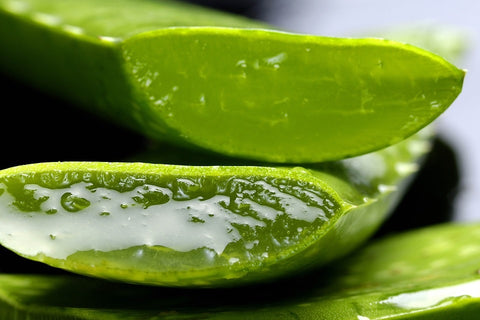
Aloe vera
And finally, the wonder that is aloe vera! Containing naturally occurring salicylic acid and sulphur, aloe vera is known to heal skin and improve acne. Frequently used for wound healing and burns treatment as well as to reduce inflammation, aloe vera is a common ingredient in skincare, like this moisturiser.
With cooling and moisturising properties, aloe vera can be used in its pure form, straight from the plant, or indeed as a gel purchased from a health food store, or it can be an ingredient in your skincare choices.
Final thoughts
Natural skincare is a great way to take care of your skin in a gentle way and to do good for the planet. There are lots of really great options for natural acne treatments and these top ten are our favourites. Look out for products that list them as ingredients as well as trying them out in pure form!
For more natural skincare, take a look at our website now.
Frequently Asked Questions
Which acne treatment is the best?
There are lots of different kinds of acne treatment and the best one depends on the kind of acne you have. In severe cases, professional intervention may be necessary but for most acne, it can be treated with over-the-counter medications and natural remedies. Natural options are more gentle than some medicated treatments and may help to keep skin feeling healthy while you treat your acne.
How can I clear up acne fast?
Clearing up your acne involves removing the acne-causing bacteria, excess sebum and dead skin cells from your skin's surface to prevent any further pore blockages. This will mean using a treatment, like salicylic acid or apple cider vinegar, that is adept at removing these substances from your skin. You can treat pimples topically with remedies like witch hazel and tea tree oil to get rid of blackheads and whiteheads.
How do dermatologists treat acne?
Dermatologists can recommend a whole host of different treatments for acne that can range from oral medications to topical treatments to therapies. Oral medication may include antibiotics or the combined contraceptive pill while topical treatments can mean salicylic acid or benzoyl peroxide. A dermatologist will know what is needed for the kind of acne you have and will treat you accordingly.
How can I clear my acne naturally?
Acne can be treated naturally with a number of remedies, these include:
- Apple cider vinegar - This helps to remove dead skin cells from the skin's surface
- Witch hazel - Used as a spot treatment and great for flushing out the bacteria that causes acne
- Aloe vera - This is perfect for reducing inflammation and redness caused by acne
- Green tea - Applied topically, this antioxidant-filled tea is great for reducing inflammation and flushing out bacteria
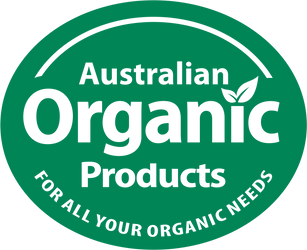
Leave a comment